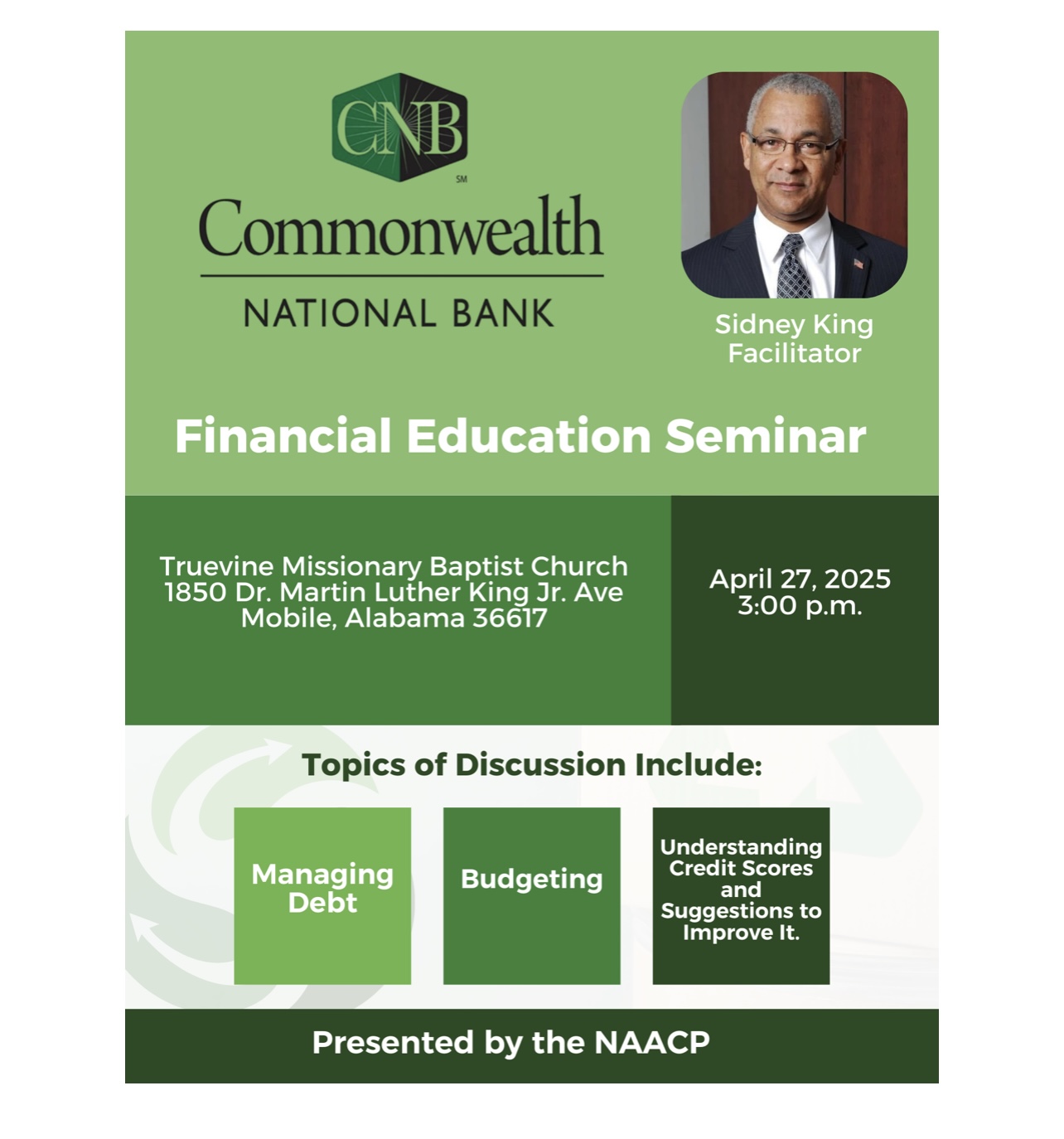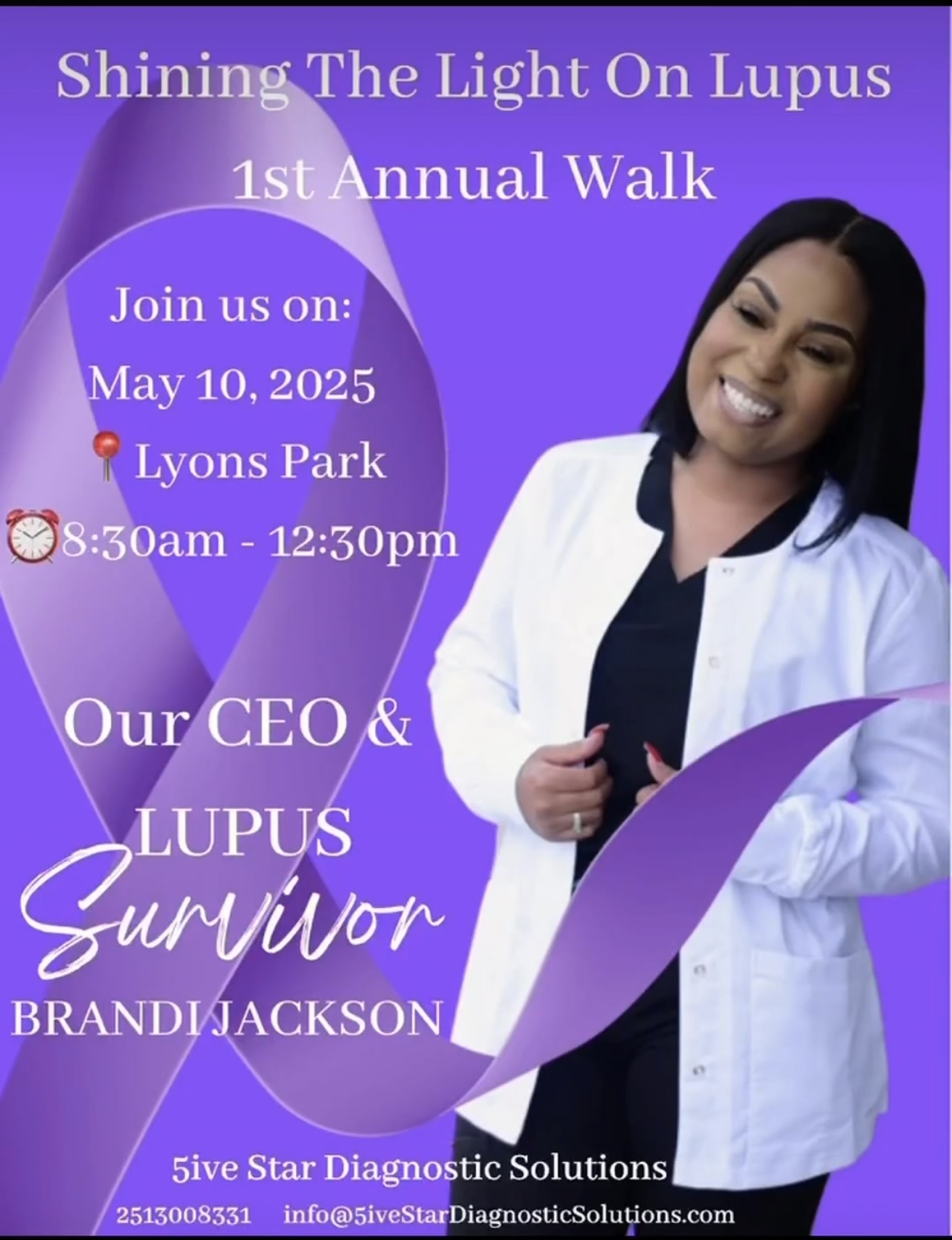Reshaping the Supply Chain and Creating More Seats at the Table
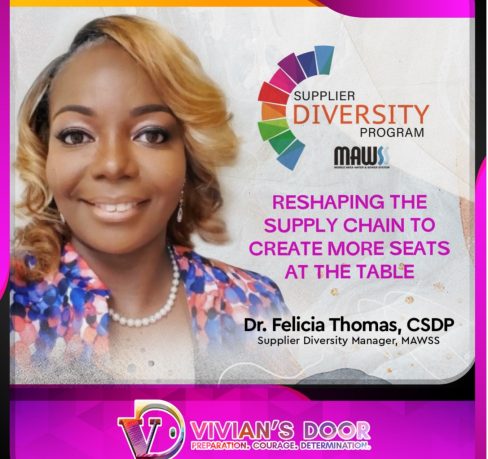
Reshaping the Supply Chain and Creating More Seats at the Table
The work we do at Vivian’s Door is sometimes daunting, and it’s always delightful to find people working hard to empower our community’s economic growth. Today, we shine the light on a phenomenal woman, Dr. Felicia Thomas, Supplier Diversity Manager, MAWSS. She works tirelessly to reshape the supply chain here in Mobile, AL to create a more diverse supplier diversity program for small and disadvantaged businesses allowing them to have an opportunity and providing a seat at the table for them.
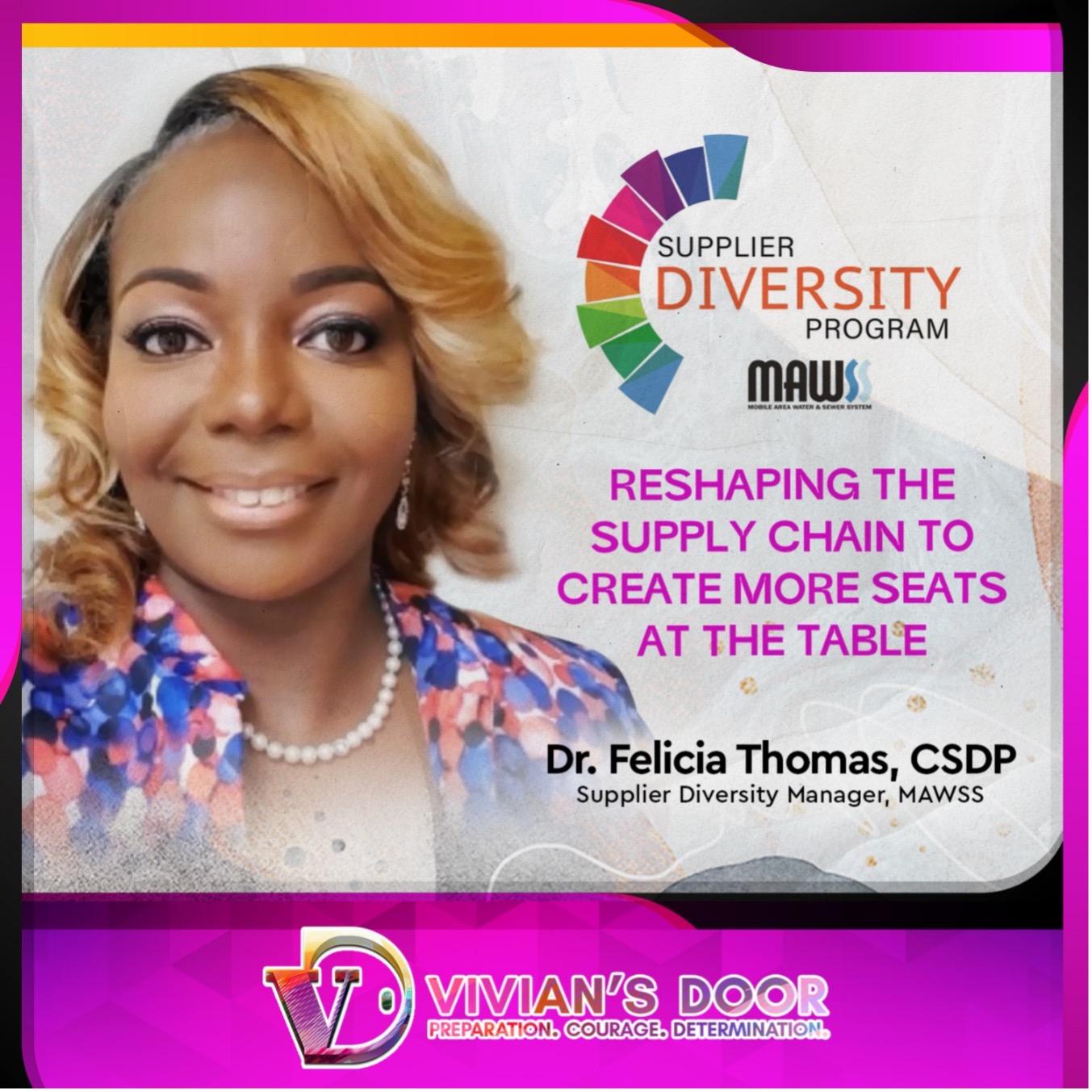
The MAWSS Supplier Diversity Program
The Supplier Diversity program is a business strategy that ensures a diverse supplier base in procuring goods and services for any business or organization. Dr. Thomas explains, “It’s where we take small and underutilized businesses, whether women, veterans, or minority-owned, and ensure they get a seat at the table. We give these businesses an opportunity to negotiate with primes where they wouldn’t otherwise get a chance to do so.” MAWSS drives inclusion when it comes to the vendors, we do business with. Diversity is the way to go for businesses, she remarks, noting that “research shows that companies that embrace diversity are more profitable than those that don’t.”
Inspiration for the MAWSS Supplier Diversity Program
According to Dr. Thomas, “the MAWSS Supplier Diversity Program is the brainchild of the Reverend Wesley A. James. Twenty years ago, the good Reverend saw fit for people who do business with MAWSS and their customers also to be allowed to be vendors for MAWSS, so that is how the program started.” A man of great compassion, he felt that the dollars spent should reflect the diversity of the customer base.
Business Owners Interested in Getting into the Program
The program has an application process for small business owners who want to join the program. Some requirements to become a part of the program are “the company must be 51% owned by socially or economically disadvantaged individuals or, in the case of any corporation that has at least 51% of the stock, must be owned by one or more socially or economically disadvantaged individuals.” Similarly, control of company management and daily business operations is by one or more small, underutilized persons who own the company.
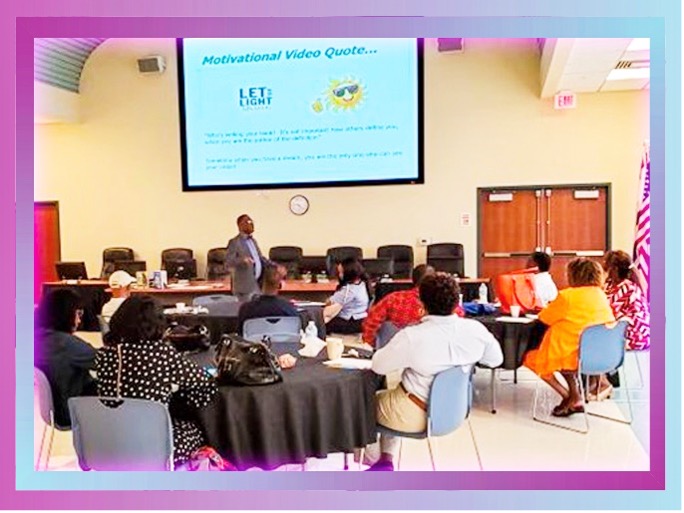
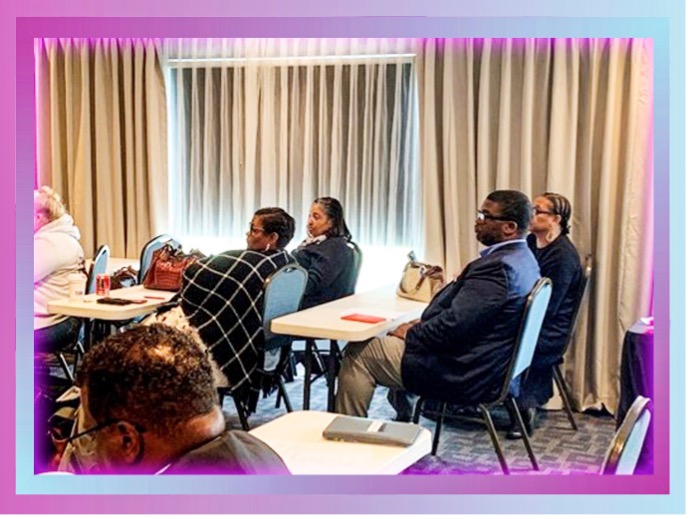
Promoting Economic Growth and Solving Problems
As mentioned, the main goal for setting up the program is to; “help small businesses understand how to build their capacity to become stronger businesses so they can scale and grow.” Ultimately, the program helps build economic growth within the community in several ways, including “holding workshops to help equip the small business owners with the tools and information they need to compete and collaborate. In addition, through the Mentor-Protege program, a business from each Cohort has been able to come back and bid and/or do work with MAWSS.” Furthermore, she explains that at MAWSS, policies ensure that small, diverse businesses are not just a part of the Supplier Diversity/Mentor Protégé programs but are included in dollars that MAWSS spends.
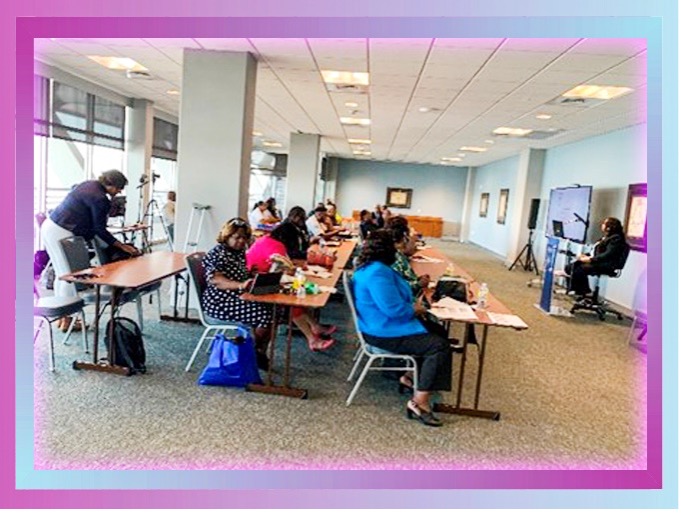 .
. 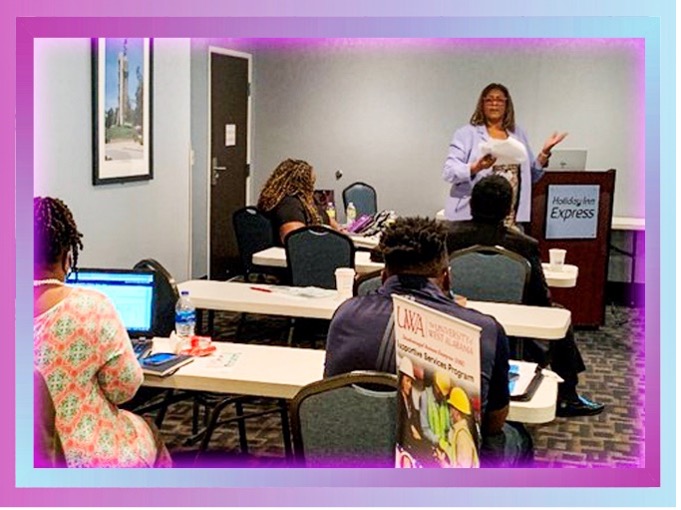
Personal Inspiration and Motivation
Dr. Thomas’s passion comes from “seeing these people make an effort to change their lives by growing their businesses and succeeding. Seeing that burning desire inside of them inspires me to give them all the tools available and the technical assistance to succeed.” The program also provides one-to-one coaching as part of our Supplier Diversity Program at MAWSS, and once certified, people can utilize that service.
At MAWSS, we have a top-down approach; “the Board and the Directors are supportive regarding diverse suppliers getting their portion and a seat at the table. Personally, duty motivates Dr. Felicia; “I consider it my duty and responsibility to ensure that it happens and that I’m doing all that I can for the people who are a part of the program.”
Rejuvenating the Program
Dr. Thomas recalls, “When I first came to MAWSS, the program had been stagnant for a while.” Her first question for the board was, “because I’m being held accountable for the diverse suppliers for MAWSS: How can I be held accountable when there is no accountability for the dollars that MAWSS spends?” So, after meeting with the Board’s Growth and Development Committee, she asked them to “help put policies and procedures in place to hold our employees accountable for the dollars we spend at MAWSS and to hold our prime contractors who are bidding accountable.” She recalls enthusiastically, “I wanted to ensure that any diverse small business in our community had an opportunity to perform work for MAWSS.” After the Board members adopted policies in December 2016 to help with these efforts, she notes there were some initial hitches. “Yes, it was a bit challenging when we first launched the new policies and procedures because they were new and different, but once we worked the kinks out, the program has strengthened. Yes, we had to throw out some bids at the beginning for not being willing to give the 15% goal of the bids to minority, veteran, and women-owned businesses, but since then, the program has snowballed.” Some bids are submitted with 20%, 30%, or even 50% to a diverse supplier.
Many thanks to Dr. Felicia Thomas and the MAWSS Board and Directors for working hard to create a stellar supplier diversity program to make our world here in Mobile, AL more inclusive and allowing underutilized diverse businesses to have a seat at the table to build economic growth in their communities. We salute your giant strides and wish you many more impactful years doing this great work you’re doing.



